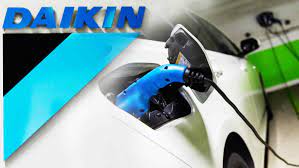
Breaking News
 Canada's Organ Harvesting just got EXPOSED, and it's Satanic | Redacted News
Canada's Organ Harvesting just got EXPOSED, and it's Satanic | Redacted News
 "GRAVE CONCERNS" CRITICAL TO SUPPLYING THE NATIONS FOOD SUPPLY
"GRAVE CONCERNS" CRITICAL TO SUPPLYING THE NATIONS FOOD SUPPLY
 Video Contradicts DHS Claims About Killing of Alex Pretti
Video Contradicts DHS Claims About Killing of Alex Pretti
 Teslas now require a subscription for features standard in a base Kia
Teslas now require a subscription for features standard in a base Kia
Top Tech News
 Researchers who discovered the master switch that prevents the human immune system...
Researchers who discovered the master switch that prevents the human immune system...
 The day of the tactical laser weapon arrives
The day of the tactical laser weapon arrives
 'ELITE': The Palantir App ICE Uses to Find Neighborhoods to Raid
'ELITE': The Palantir App ICE Uses to Find Neighborhoods to Raid
 Solar Just Took a Huge Leap Forward!- CallSun 215 Anti Shade Panel
Solar Just Took a Huge Leap Forward!- CallSun 215 Anti Shade Panel
 XAI Grok 4.20 and OpenAI GPT 5.2 Are Solving Significant Previously Unsolved Math Proofs
XAI Grok 4.20 and OpenAI GPT 5.2 Are Solving Significant Previously Unsolved Math Proofs
 Watch: World's fastest drone hits 408 mph to reclaim speed record
Watch: World's fastest drone hits 408 mph to reclaim speed record
 Ukrainian robot soldier holds off Russian forces by itself in six-week battle
Ukrainian robot soldier holds off Russian forces by itself in six-week battle
 NASA announces strongest evidence yet for ancient life on Mars
NASA announces strongest evidence yet for ancient life on Mars
 Caltech has successfully demonstrated wireless energy transfer...
Caltech has successfully demonstrated wireless energy transfer...
 The TZLA Plasma Files: The Secret Health Sovereignty Tech That Uncle Trump And The CIA Tried To Bury
The TZLA Plasma Files: The Secret Health Sovereignty Tech That Uncle Trump And The CIA Tried To Bury
New EV Air Conditioner Refrigerant Said To Extend Range By 50%

In extreme temperatures, cabin cooling and heating eat up significant amounts of power from an EV's battery. As a result, there are many gains to be made in terms of boosting driving range by making heating/cooling systems more efficient.
That's where Japanese top air conditioner maker Daikin Industries comes in, as the company claims it has developed a refrigerant for EVs that can extend their range by up to 50%, with the product scheduled to go on sale by 2025.
It is obviously great news and, as the report from Nikkei Asia reveals, Daikin's new refrigerant has a boiling point of about minus 40 C, which is 10 to 15 degrees lower than the product currently used by EV makers worldwide.



